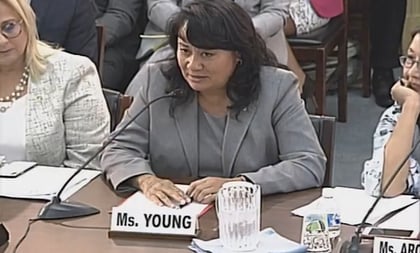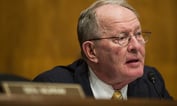Public health officials in the U.S. territories are pleading with Congress to renew their “supplemental” Medicaid and Children’s Health Insurance Program (CHIP) funding.
Because the basic federal Medicaid funding stream covers only a small portion of the territories’ actual Medcaid and CHIP spending, Congress has provided a majority of the territories’ federal funding through five separate “supplemental” streams.
Authorization for all of the five supplemental funding streams — including two related to the Affordable Care Act of 2010; one from Consolidated Appropriations Act, 2017; one from the Balanced Budget Act of 2018; and one from the Additional Supplemental Appropriations for Disaster Relief Act for 2019 — have expired in the past few months or are about two expire soon, according to Anne Schwartz, executive director of the Medicaid and CHIP Payment Access Commission.
(Related: Bill Could Provide State-Level Medicaid Funding for Puerto Rico)
The House Energy and Commerce health subcommittee brought Schwartz, and public health officials from the U.S. territories, to Washington Thursday, for a hearing on the territories’ health care funding situation.
Rep. Anna Eshoo, D-Calif., chair of the subcommittee, said at the hearing, which was streamed live on the web, that Medicaid program funding for the territories has been too low and too uncertain all along.
“It’s a form of negligence to allow this to go on,” Eshoo said. “This has to change. People are desperate.”
Rep. Frank Pallone Jr., chairman of the full committee, also called for quick action on health care funding for the territories.
“Experts predict that unless Congress acts, none of the territories will have enough federal funds to support their Medicaid programs next year,” Pallone said. “Puerto Rico could potentially spend all its federal funds in a matter of months, facing a shortfall of billions of dollars for the year.”
The Territories
The United States has a population of more than 300 million and about $60,000 in annual gross domestic product (GDP) per person, or national income per person.
Here’ are snapshots of the U.S. territories, based on data provided by Schwartz, and by the National Conference of State Legislators:
Puerto Rico
- Population: 3.4 million
- GDP per capita: $19,310
- Percentage of population covered by Medicaid or CHIP: 37%
Guam
- Population: 161,000
- GDP per capita: $31,809
- Percentage of population covered by Medicaid or CHIP: 21%
U.S. Virgin Islands
- Population: 102,951
- GDP per capita: $35,302
- Percentage of population covered by Medicaid or CHIP: 16%
American Samoa
- Population: 57,400
- GDP per capita: $13,300
- Percentage of population covered by Medicaid or CHIP: 79%
Northern Mariana Islands
- Population: 53,500
- GDP per capita: $16,297
- Percentage of population covered by Medicaid or CHIP: 33%
Territorial Differences
One problem the territories face is a Medicaid funding formula that’s different than the formula used for states. States get funding based on the number of people in Medicaid and actual costs. The territories get a basic allotment that grows with the overall inflation rate, not the much higher health care cost inflation rate.
Witnesses said another problem they have, in addition to low and erratic federal funding, is federal officials’ lack of understanding of what conditions in the territories are like.
Puerto Rico, for example, is coping with the effects of devastating hurricanes, but it has a large population; a large, publicly traded private insurer; and many health care providers and hospitals.









 June 21, 2019 at 05:04 PM
June 21, 2019 at 05:04 PM











